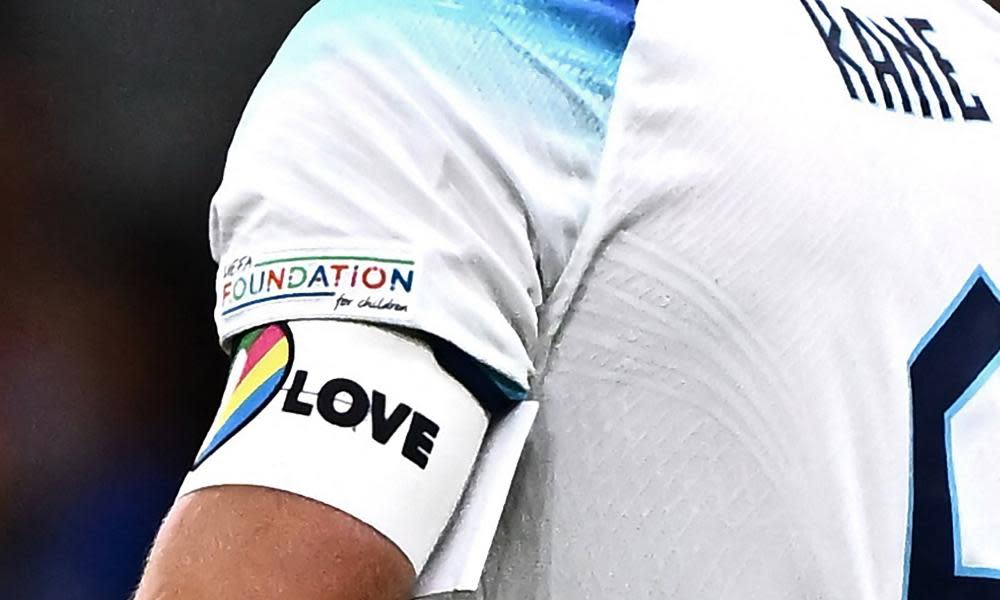OneLove armband sends ‘very divisive message’, says Qatar official

The head of Qatar’s World Cup organising committee has accused teams who wanted to wear the OneLove armband at the World Cup of sending a “very divisive message” to the Islamic and Arab world.
Hassan al-Thawadi’s comments came as the UK sports minister Stuart Andrew said he would wear the rainbow-coloured armband at the England v Wales match on Tuesday.
The Conservative frontbencher, who is gay, said it was “really unfair” that Fifa had threatened sporting sanctions at the 11th hour against seven European teams who had planned to wear the anti-discrimination symbol in Qatar, forcing them to protest in other ways.
“I want to show support and I was delighted to see that the German minister who attended a recent match has worn it, I think it is important that I do so,” he added.
However, Thawadi – secretary general of the supreme World Cup committee for delivery and legacy – said he had an “issue” with the armband because he saw it as a protest against Islamic values and an Islamic country hosting such a major event.
“If the teams decided to do it throughout the entire season, that is one thing,” he said, when asked if he felt nervous about armbands. “But if you’re coming to make a point, or a statement in Qatar, that is something I have an issue with. And it goes back to the simple fact that this is a part of the world that has its own set of values.
“This is not Qatar I’m talking about, it’s the Arab world,” he added. “For the teams to come and preach or make statements, that’s fine. But what you’re essentially saying is you’re protesting an Islamic country hosting an event. Where does that end? Does that mean no Islamic country can never be able to participate in anything?
“There’s going to be different values and different views coming in. So, for me, if you’re going to come specifically to make a statement here in Qatar – or specifically addressed to Qatar and by extension, the Islamic world – it leaves a very divisive message.”
Same-sex relationships are illegal in Qatar and while organisers and Fifa have repeated the message that “everyone is welcome” during the World Cup, it is unclear whether laws that criminalise acts such as kissing in public have been suspended.
Fans attending matches have also had rainbow items, including T-shirts and Wales bucket hats, confiscated by officials, before Fifa later said they should be allowed in stadiums.
But Thawadi said organisers only wanted visitors to respect the culture and religion of the region. “These values are regional,” he added. “It’s for the Islamic world, it’s for the Arab world, it’s for the Middle East. There are certain things that we will not agree upon. But let us find a way of coexisting and moving forward, one way or the other. That is where mutual respect is fundamental.”
In his interview with the TalkSport UK radio station, Thawadi also defended the Fifa president, Gianni Infantino, for his pre-tournament remarks in which he said he felt Qatari, Arabic, African, gay and disabled, before warning western countries that they were in no position to give morality lessons to Qatar given their past and current behaviour.
“For a lot of people in Qatar and the Arab world what he said to a large extent reflected the frustration of 13 years being presented in a certain way in the media,” said Thawadi.
“A lot of Arabs that I’ve talked to have admired what he said. It addressed the fact that people did feel that the outside world is coming and passing judgment unequivocally on our part of the world – on us as people, on the Arab world and the Middle East.”

 Yahoo News
Yahoo News 
